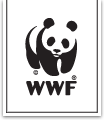The World Wildlife Fund (WWF) and more than 125,000 of its US supporters on December 2 urged US President Barack Obama to take strong action to address the global illegal fishing problem.
According to the conservation organization’s website, the US has an unprecedented opportunity to put a dent in the global trade of illegal seafood later this month when a task force is expected to provide Obama a set of recommendations outlining the steps the federal government should take to prevent illegal fish from ending up on the dinner plates of consumers.
“We can’t shy away from strong solutions,” said Michele Kuruc, the WWF’s vice president for marine policy. “Americans deserve to know the fish they buy is not stolen, US fishermen deserve a level playing field, and our oceans deserve to be protected.”
The United States is one of the largest markets in the world for imported seafood, buying approximately 5.3 billion pounds valued at almost $18 billion annually. The Presidential Task Force on Combating Illegal, Unreported, and Unregulated (IUU) Fishing and Seafood Fraud represents the best opportunity for the US to close its borders to illegal products, according to the WWF website.
WWF provided supporter signatures to the Task Force’s co-chairs, National Oceanic and Atmospheric Administrator Kathryn Sullivan and Department of State Under Secretary for Economic Growth, Energy, and the Environment Catherine Novelli.
“We can’t shy away from strong solutions. Americans deserve to know the fish they buy is not stolen, US fishermen deserve a level playing field, and our oceans deserve to be protected,” said Kuruc.
In part, WWF and its supporters are asking the Presidential Task Force to recommend the issuance of new regulations that build on existing law or existing legal frameworks to ensure all fish are fully traceable to legal sources.
The Foundation maintains that regulations should require:
- Catch Documentation: That all seafood sold in the United States be accompanied with basic and consistent information;
- Traceable to legal and verifiable sources: That this information should be traceable by regulators and supply chain actors from bait to plate;
- Border Control: That border measures should be designed to allow for informed decisions about product legality based on this information.





